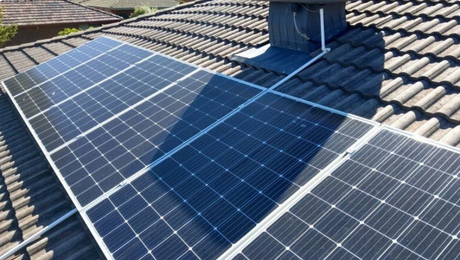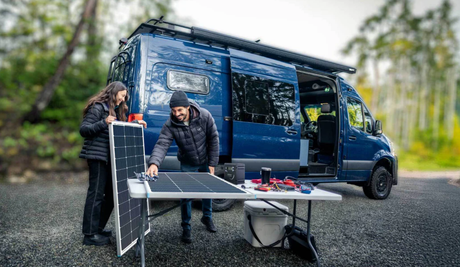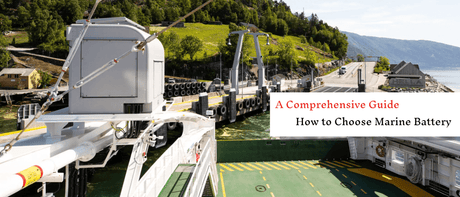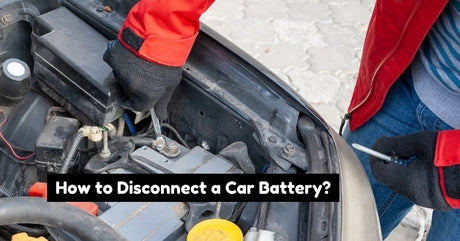In 2020, Canada ranked 22nd in the world for solar power, but that number is on the rise in recent years. Solar’s rise in popularity over the last few years is nothing to scoff at; not only is solar energy more environmentally friendly, but most people who buy solar panels notice major savings in their regular energy costs.
Though the initial installation of a solar panel battery, solar inverter, and other equipment can be costly, most of the time, switching to solar will pay for itself within a few years. Before making the switch to this environmentally friendly energy option, it can be helpful to understand how it truly works. Instead of seeing solar panels as large, reflective structures on roofs, you can start to understand how they work, and realize just how amazing they truly are.
Table of contents
- What are solar panels?
- How are solar panels made?
- How do solar panels work?
- Can solar panels really provide electricity to my home?
- How long do solar panels last?
- How does grid connection work with solar panels?
- Are solar panels a good financial investment?
- Making the switch to solar
What are solar panels?
Solar panels are fascinating pieces of technology that are designed to convert sunlight into electrical energy. Each solar panel is made up of silicon, glass, and a set of wires. Inside these panels, photovoltaic (PV) cells do the heavy lifting, and each panel is made of a group of these cells.
PV cells look like a reflective window and the number of cells in a panel can vary widely, ranging from 36 cells for a 12-volt set of panels to 72 cells for a 24-volt set of panels. These cells are crucial for collecting photons from the sun and converting that energy into electricity that can be used in your home.
How are solar panels made?
Made from silicon, if you buy solar panels, you are purchasing something filled with one of the most abundant elements on earth. Solar panels themselves are complex, highly sophisticated pieces of technology, so it is not recommended to try and build your own. Every panel has a layer of silicon cells that are surrounded by a metal frame and protected in a glass casing. The set of wires inside each panel is what transports electrical currents from the cells themselves.

The solar panel casing is a critical aspect of manufacturing for multiple reasons: first, it protects all the vital cells inside, but it also offers insulation to protect against heat and humidity. Solar panels and solar power generators sit outside all the time and are subject to the elements. The heat or humidity build up inside each panel will decrease the panel’s effectiveness, therefore, the importance of the casing.
How do solar panels work?
When the sun is shining, it is always releasing tiny particles of energy called photons. When those photons come in contact with solar panels that are part of a solar power generator, these negatively charged photons cause a disruption, causing electrons to move around within the solar cell. When the sun hits your solar panels, a few things happen that bring that energy to your home:

Absorption
When photons hit your solar panels, they set off a reaction of negative and positive charges, creating an electric current. As the sun’s rays continue to interact with the solar cells, the electric current begins to flow freely. However, at this point, that electric current cannot be harnessed as energy for your home. First, it must be converted to the right form.
Inverters Change Energy Types
The role of a solar inverter is critical in this process; it’s responsible for capturing the electric current created when the sun hits the solar panel and changing it to the right type of electric current that can be used in homes and buildings. At first, the energy generated is a direct current (DC), but then, the solar inverter changes that energy into an alternating current (AC), which is the type of current used to power homes. During this process, a little bit of power is lost, but it’s necessary if you want solar power in your home.
Electricity Becomes Available
Once the energy inside the panels is converted to alternating current energy by the solar inverter, it is pushed to an external circuit, which connects with your home. This energy can be used to power lights, appliances, televisions, and more, offering a reliable alternative energy source in residential areas.
Energy is Stored
If you buy solar panels that generate more power than you use during the day, that energy doesn’t go to waste. Instead, it can be stored in a solar panel battery or sold back to your utility company. It’s not uncommon for sunny days to generate more electricity than any one household can use, but the ability to store and resell energy makes the decision to buy solar panels even easier.
Though the process of how does a solar panel work is not always common knowledge, it is simple to understand. The power of the sun is unbeatable and it’s clear that with time, humans can continue to refine how we harness and utilize solar power, increasing efficiency and lowering associated costs.
Can solar panels really provide electricity to my home?
As solar panels continue to get more advanced, they are able to generate more power with a smaller number of panels. The average home in Canada uses 11,135 kWh of electricity per year, and knowing this measurement is the first step in figuring out how many units you’ll need when you decide to buy solar panels. Most solar panels generate 250-400 watts of power. If the solar panels you install fall in this range, then you’ll need about 20-25 panels to power your home, which is completely doable.
Keep in mind that during colder, darker months, your solar power generator will not create as much energy. However, all the electricity you stored in a solar panel battery or sold back to your utility company during the summer months will come back to reward you during these times. You can apply credits to your energy bill if needed, ensuring that your investment in solar power pays off.
How long do solar panels last?
Built to last, the average lifetime of a solar panel is 25 years. The maintenance required is minimal, but it is recommended to keep panels clean to maximize their production levels. Of course, if a panel breaks or gets damaged, you’ll need to replace it, though instances of damaged panels aren’t too common.

It’s estimated that panels begin to degrade at a rate of 0.8% each year. After the 20-year mark, the solar panels you purchased will be operating at about 84% of what they were during the first year of installation. Some crystalline panels boast even longer life spans and can last up to 40 years with a minimal degradation rate.
However, the solar inverter and solar panel battery in your system will need to be replaced often. Solar inverters last anywhere from 10-15 years and a solar panel battery will likely last 8-15 years.
If you do have to replace solar panels, a solar inverter, or even a solar panel battery, be sure to look into the warranty you received when you first made the decision to buy solar panels. Warranties can range from 10-25 years, so they may not end up covering everything, but they offer a good place to start.
How does grid connection work with solar panels?
For many consumers, the ability to sell electricity back to their utility company can feel too good to be true. The way energy grids work is not common knowledge, leaving many solar panel owners in the dark about this benefit. If your home is connected to an electrical grid, which most are, then you’ll have a utility meter provided by your energy company. Utility meters are used by energy companies to measure the amount of energy used by each household, thus, determining the monthly energy cost for that household.
Utility meters can also be used in reverse to determine how much energy a household creates and sells back to the grid, making it easy for consumers to get account credits with their utility company.
Are solar panels a good financial investment?
Don’t let the upfront costs scare you off; if you can swing it, solar panels are a great investment. The average cost of installing solar panels in Canada is about $22,500 . The cost depends on the city you live in, the size of your solar panel system, and other factors. However, there are many financing options for households who want to install solar, and sometimes, there are refunds offered by the government for doing so.
Over a few short years, you’ll be saving loads of cash in energy payments on a monthly basis, leading you towards a break-even point in your investment. Once you break even, the energy that supports your home will essentially be “free” aside from maintenance and upkeep costs. In the end, though it can be expensive to buy solar panels and install them, most consumers consider it a worthwhile investment.
Making the switch to solar
It has never been easier to buy solar panels and start using them. The industry is more widely accepted, and households have many options to choose from. With unpredictable climate and repeated examples of energy grids buckling on some state’s level, investing in solar energy is a wonderful way to protect your family from these challenges. If you’re ready, be sure to research your options to find the best provider for your needs.
At Renogy, you can get the most out of your investment in off grid solar kit. Renogy is an expert in developing user-friendly, reliable, and high-quality renewable energy products. Here, you will find solar power generators, solar battery, inverters, and all other components that are required for a complete off-grid solar system. Get an all-in-one solution for going solar with Renogy's help right now.
References:









